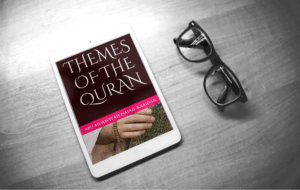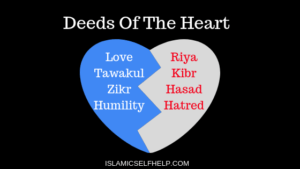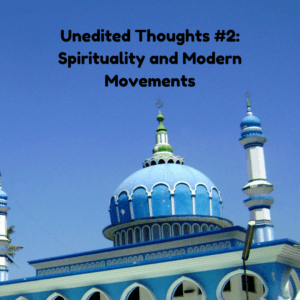Surah al-Wāqiʿah is one of my favorite Surahs in the Quran. It is a beautiful poetic description of the Last Day and the final destinations of the various groups of humanity. This Surah is full of amazing lessons in theology and spirituality. I try to recite this Surah at least once a week and reflect on its meanings. I am always fascinated at how the Surah balances between creating a fear of Hellfire in our hearts while increasing our optimism that we can enter Paradise.
Background Information
Surah al-Wāqiʿah is a Makkan Surah, and this is clear from both its style and content. Its verses are short, powerful, and poetic. These are all indicative of the Makkan revelation. The content is purely focused on aspects of theology, namely the Last Day and the Afterlife. This is usually the theme of a Makkan Surah.
There are several narrations regarding the virtues of Surah al-Wāqiʿah. However, each of these narrations is of disputed authenticity, so scholars differ over its virtues. Nonetheless, it remains a powerful Surah that should be recited and reflected on often, regardless of whether we consider these narrations authentic or weak. The first narration is that the Prophet (peace be upon him) listed five Surahs that turned his hair gray, and included Surah al-Wāqiʿah in that list. (Ash-Shama’il Al-Muhammadiyah 41) The second narration is as follows.
“Whoever recites Surah al-Wāqiʿah every night, poverty will never affect him.”
Al-Tahrīr and al-Tanwīr, vol. 11, p. 279
Both of these narrations have disputed authenticity. Even among my own teachers, some regard them as weak while others regard them as authentic. I am inclined towards the opinion that they are Hasan, and Allah knows best.
A summary of its themes
Surah al-Wāqiʿah covers six core themes, all related to each other, in the following order:
- A description of the end of the world and commencement of the Last Day
- A description of the two types of people that will enter Paradise and the rewards that await them in Paradise
- A description of the punishment of Hellfire and what awaits the disbelievers in Hell.
- An explanation of the Power of Allah through various examples.
- An explanation of the status of the Quran.
- A description of death and how the soul leaves the body. (Al-Tahrīr and al-Tanwīr, vol. 11, p. 280)
The central theme of this Surah is theology, with a strong focus on eschatology. All six of these topics are fundamental aspects of Islamic theology, while four out of six are eschatological topics. Almost every core belief of Islam is described in detail in this Surah, making it a fundamental Surah for every believer to study and reflect on.
The Ones Who are Close to Allah
Surah al-Wāqiʿah, like Surah al-Rahmān, divides people into three groups; those who are close to God, the people of the right hand, and the people of the left hand. Two of these groups eventually enter Paradise, while the third is destined for eternal damnation. This division gives us hope of entering Paradise while making us wary of the paths to Hell.
The people of Paradise are divided into two types because not all believers are the same in their levels of piety. Yet Allah’s Infinite Mercy encompasses all believers, so even the biggest of sinners eventually enter Paradise, as long they truly believed. The divisions listed in this Surah are the close ones and the people of the right hand.
The close ones refer to the prophets, righteous, martyrs, and truthful people. (Al-Tahrīr and al-Tanwīr, vol. 11, p. 290) It includes the pious of the previous nations i.e. the true followers of Jesus, Moses, and all previous prophets, as well as the pious of this nation. In this Surah, the righteous are described as, “many from the previous generations, but a few from later generations.” (Quran 56:14) One interpretation of this is that as we get closer to the end of time, there will be less pious people on earth.
The fact that the pious will be fewer in the end times should give us something to think about. Are we trying to be among those few? It is true that it is a lot more difficult to be righteous today than it was during the time of the early Muslims, but the rewards are also proportional to the level of difficulty. These verses should inspire us to try our best to make it into those few of the later generations.
Many of the Later Generations
The good news that follows in the next set of verses is that the people of the right hand will be “Many of the early generations and many of the later generations.’ (Quran 56:39-40) The people of the right hand refer to those people who receive their book of deeds in their right hands on the Last Day. This means that their good deeds outweigh their sins by enough to get them into Paradise.
This is a level below the righteous. The righteous most likely will not have any reckoning on the Last Day at all, and will likely enter Paradise without accounting. The average believer, however, will have their good deeds and sins weighed. Whichever is heavier will decide whether they go directly to Paradise or require purification through Hellfire first.
This Surah does not discuss the fate of believers who receive their book of deeds in their left hand. The people of the left hand mentioned in this Surah are the disbelievers. Due to it being a Makkan Surah, the focus is primarily on the different destinations of those who believe in this message and those who reject it.
The fact that the people of the right hand are described as many of the later generations should fill our hearts with hope. It means that many Muslims will enter Paradise without going to Hellfire first, despite their sins. This gives hope to the average Muslim, as we commit sins every single day. Knowing that if we keep trying to be righteous, working on our good deeds, and repenting for our sins, then maybe we too could be among the people of the right hand.
The Reality of Death
Death is a reality that we too often choose to ignore. Death is scary, permanent, and a transition into the unknown. When we die, our souls leave this universe and move into the Barzakh, the dimension of souls. Thinking about this can be a very sobering experience.
In Islam, reflecting over death is a necessary part of spiritual development. We are advised to frequently remember death and to prepare for it. Our wills should always be updated, our family prepared, and our deeds in order. This world is just a temporary resting place for our souls on its journey to the Afterlife. Knowing this, the believer lives a life of purpose, focused on making it into Paradise, and to perhaps one day become one of the ‘close ones’.
When it (the soul) reaches the throat, while you are present and watching. But we are closer to him than you, even though you cannot perceive that. If you believe that you will not be taken into account, then return it (the soul to the body) if you are truthful.
Quran 56:83-87
To learn more tafsīr of the Quran, check out my book Themes of the Quran, available at the links below.






